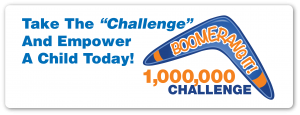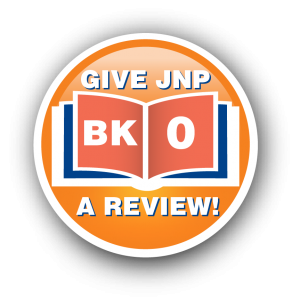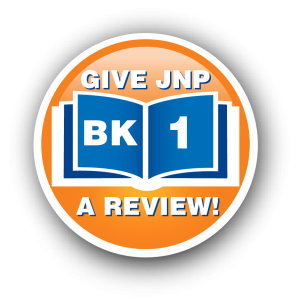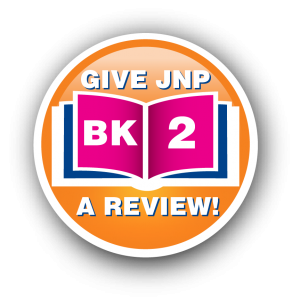Kids Photo Gallery | Kids Art Gallery | Kids Comments | Kids Statistics: Esteem | Kids Statistics: Bullying | Parenting Tips: Kids Empowerment | Hot Topics | Supportive Research: Kids Healthy Self-Esteem
 PARENTING TIPS!
PARENTING TIPS!
EMPOWERMENT INSIGHTS—HELPFUL TIPS AND SUGGESTIONS
The JNP brand elements are focused on assisting parents, caregivers, teachers and counselors to educate children, ages 3 to 103, about developing healthy self-esteem and self-confidence. There is no better time to help young girls and boys focus on the beauty within.
*Our Parenting Tips are delivered by Judy Bartkowiak, NLP (Neuro Linguistic Programming) Specialist
The Role of Oracle; His Unemotional Adult View Directs Children in the Best Positive Way.
In our adventure stories, Jane & Jake’s Adventures to Awesome, Oracle directly influences the outcome.
Through guiding Jane and Jake’s learning and personal development, Oracle influences the outcome of the adventures. Unlike them though, he is the main adult in the stories and can observe, yet not get emotionally involved as they do (and as we as parents do). This is a useful third position to encourage children to access because it is a good way to deal both with their own inner conflicts and external negative pressures. By simply being able to focus on what they observe in a situation they can see both sides and separate their own emotions so they can clearly see what they need to do.
Action point for you: How do you encourage children to find their inner third position or their inner Oracle? Children have fantastic imaginations and can easily imagine themselves as a “fly on the wall” or like a camera above them. Ask them what the camera can see. Who is doing what? How could they get a different outcome or result by just focusing on what they observe rather than what they are feeling?
Inner Beauty.
Oracle talks about Jane’s inner beauty.
In our day to day lives as parents we focus a lot on how our children look. We worry about whether they are over or underweight , whether their hair needs cutting, shoes need cleaning, and so on. These things are important and they are our responsibility while they are young, but when all those things have been ticked off your list, look again.
Think about their qualities. Which do you particularly notice, which do you admire? Which have they inherited from you and which from your partner? Be curious about the qualities that are less familiar to you. What can you learn from them? Our inner beauty is reflected to others through acts of kindness, in how we connect with others which we call rapport. But when children are lacking in self esteem they keep their inner beauty hidden. Notice how Jane’s colors are often hidden, although of course, Oracle can see them. This can lead to unhealthy self-esteem as one might appear almost invisible to others. Jane is called “plain Jane” by her unknowing school friends because they see none of her inner beauty. In our stories, Oracle can see Jane’s inner beauty, her qualities and her strengths.
Action point for you: Be curious, look for your child’s inner beauty. What you focus on is what we see more of. Enjoy noticing your child’s inner beauty this month.
We All Have Different Points of View; Kids Too.
Jane & Jake’s Adventures to Awesome offer three endings; empowering kids about points of view.
The JNP series has a number of unique features and one of them is that we offer readers a choice of three endings. This isn’t because we can’t decide which one to use or because each of us wanted to write a different ending. No, it is to show that in life we get a different outcome depending on what we do. We can influence the outcome we get. There is no one truth. Each person has a different perspective. The map is not the territory, how we see the world is only our way of seeing it. Others will see it differently depending on their life experiences, memories, beliefs and values.
Action point for you: Encourage your child to be aware of different points of view. We usually call our own point of view “first position.” The other person’s point of view is second position. Third position is that of the impartial bystander or so, done watching on and uninvolved. Your son may identify with Jake’s first position and want to read that ending, but encourage him to then read Jane’s as an interesting second position and Oracle’s as a slightly disassociated third position. Use the different endings as a discussion point with your child. Perhaps they’ve been in a similar situation and this is helping them to get another perspective on what happened.
Heads up!
Notice that when Jane is feeling sad, Oracle tells her to look up. Why?
Because when you look down you dwell on your thoughts and feelings. It’s fine to reflect on them and learn but this is the ‘problem state’ so you won’t find any solutions there. Instead, look up and to the left to look for past solutions that have worked. Look up and to the right to construct new outcomes and possibilities. This is the ‘outcome state’. When you can visualize a positive outcome it becomes possible. Notice how athletes look before a race, look down first to check in with their feelings about the race, manage them, then look up to visualize a successful outcome.
Action point for you: Teach your child to move from problem to outcome state simply by looking up.
I Can’t.
How tempting it is when your child says, “I can’t” for you to respond, “Yes, you can.”
Instead, acknowledge your child’s concerns. At this moment she can’t do it or feels she can’t do it yet. The important word is ‘yet’. What does she need then in order to be able to do it? Help her find the resource she needs. Is it time? How can you give her more time to do it? Is it courage? Where have you seen her show courage, remind her of when she has this resource so she can access it: “Do you remember when you…? that was very brave.” She may not have filed away that experience as an example of being brave—she needs your help. Does she need another explanation of how to do what’s been asked? Maybe you need to explain it in more or less detail, in a different way, slower, a bit at a time. Maybe she just wants a bit more attention. “I can’t” comes from the child within us.
Action point for you: Perhaps a smile, a hug and an encouraging word from you are all she needs. Next time just add ” No, I know you feel you can’ t do it yet, but you soon will.”
Recognizing Self-Esteem.
Whatever you focus on is what you’ll see more of.
You know if you’ve just bought a new car you’ll suddenly find yourself noticing all the ads for that car make and noticing articles saying how good it is. This is called cognitive dissonance. We have a natural inclination towards being in alignment, so we notice factors that bring us into alignment or maintain alignment. We want our behavior, or our child’s behavior, to be aligned with our beliefs and values. When we focus on what is not in alignment such as when our child displays low self-esteem, this is uncomfortable.
Action point for you: Instead, look out for signs of high self-esteem and ignore the rest. Your child will soon pick up that he’ll get noticed and rewarded by way of positive attention when he behaves in a confident way.

* Our PARENTING TIPS are delivered by our professional NLP (Neuro Linguistic Programming) Practitioner and Trainer, Judy Bartkowiak — She is a member of The JNP Creative Writing Team for the story-book series: Jane & Jake’s Adventures to Awesome. You can also follow her on Twitter @kids_nlp; Facebook NLPKids; www.nlp4moms.com
A note from Judy:
Isolated? I don’t think so! It’s a romantic notion that writers sit in a garret room waiting for inspiration and writing for long hours hunched over a candle and a mug of broth. These days you’ll find us tapping away on our tablets in a corner of the ‘jungle gym’ where our kids are playing happily. We can be found in the car park at school scribbling an idea on the back of a school form or we’ll be chatting on Facebook, tweeting and blogging. We are not the solitary beings of yesteryear; we are totally immersed in life.
As a mom of four children and an NLP kids trainer and practitioner I am reminded daily of the struggle children have with identity and self-esteem and it seems to start earlier and earlier. I look forward to contributing to The JNP Project with helpful tips and suggestions that will be positively empowering.
NLP is:
Neuro is how we think, our values and beliefs often established in childhood.
Linguistic is what we say and how we say it, also that irritating and mischievous inner voice.
Programming is the patterns of the behaviour that results from them.




